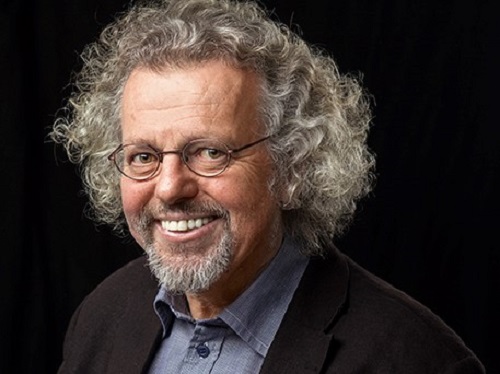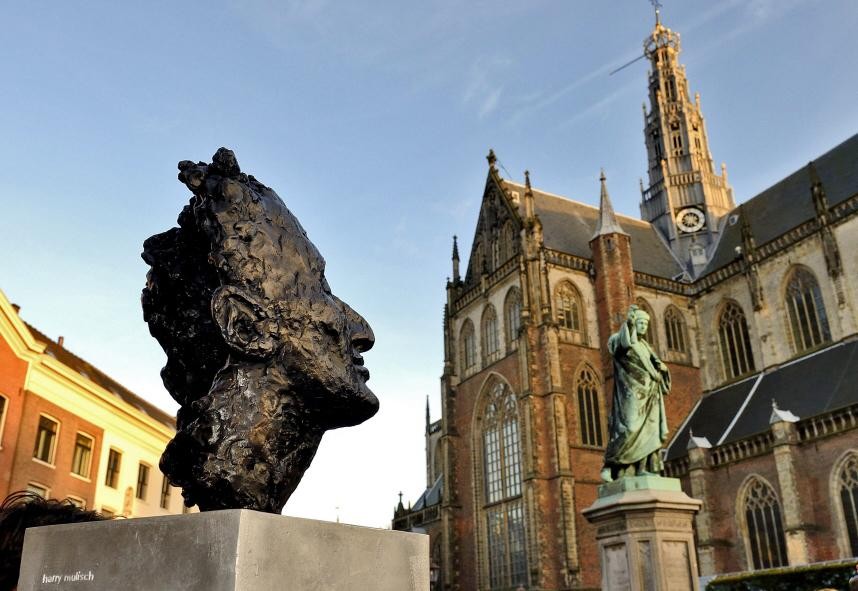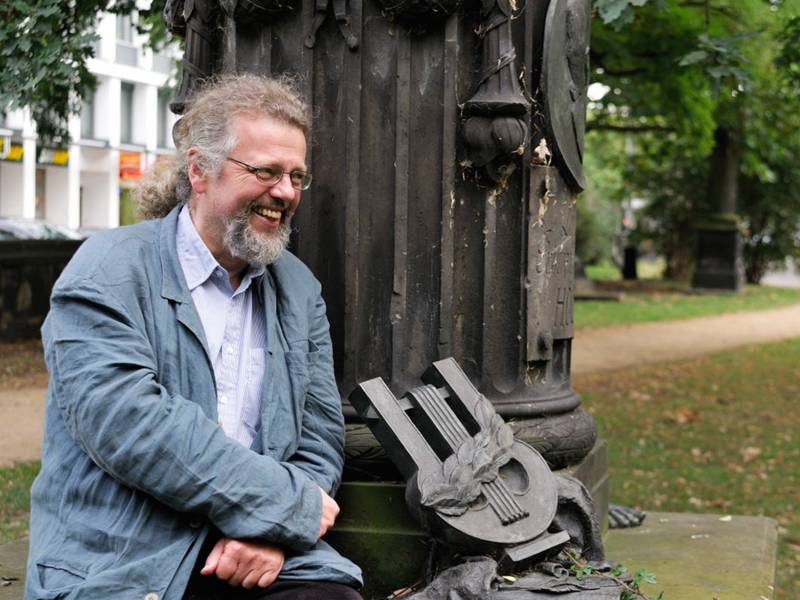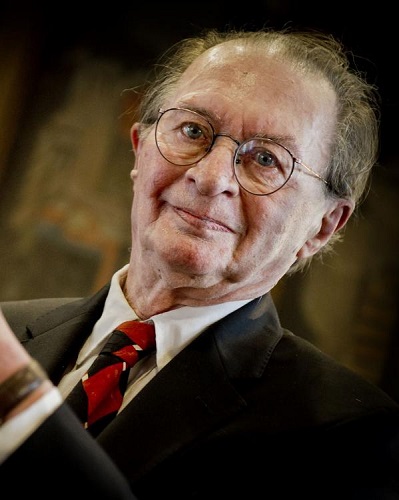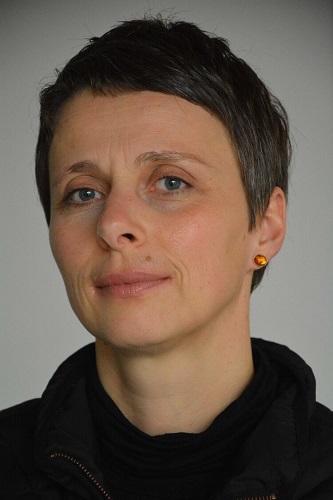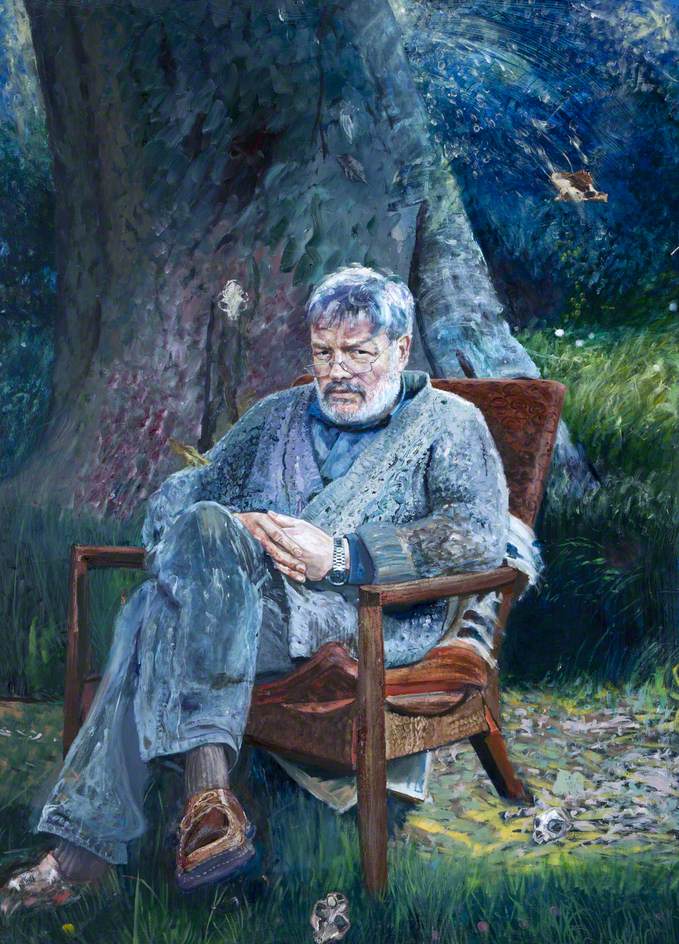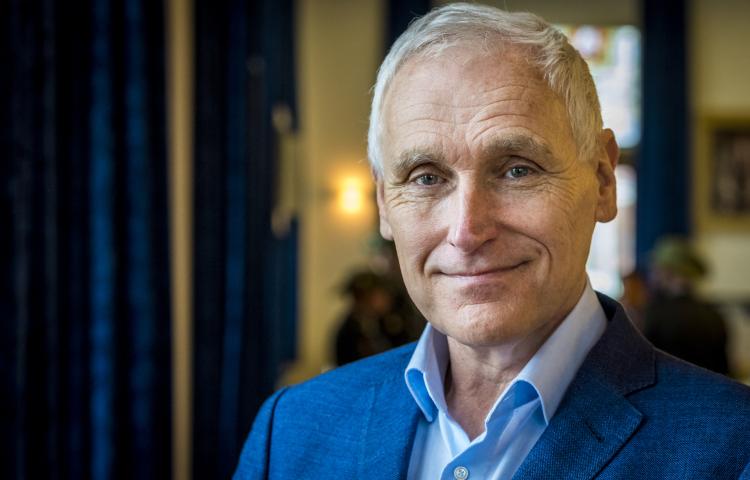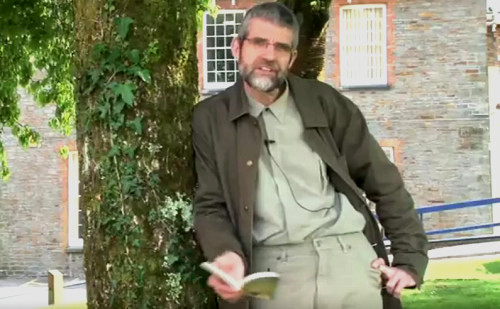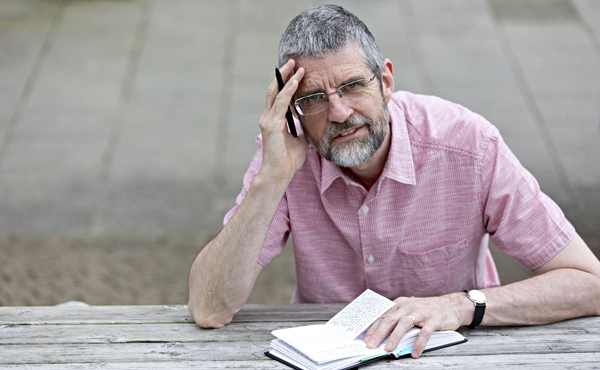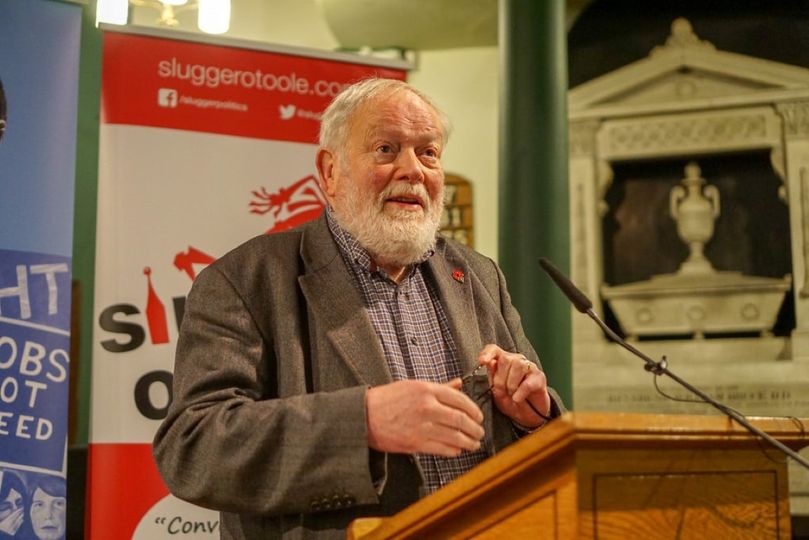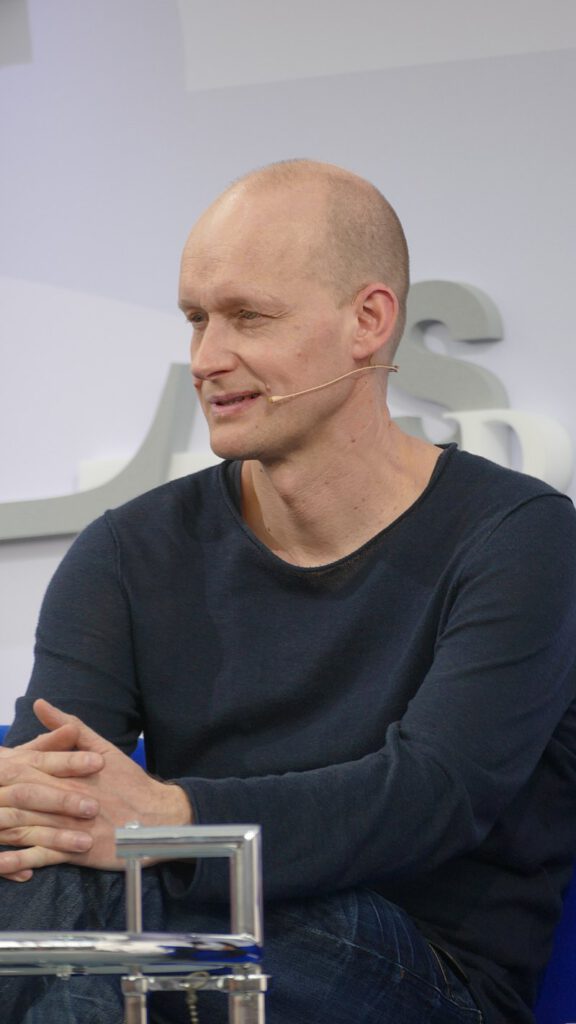De Nederlandse dichter en schrijver Cees Nooteboom werd geboren in Den Haag op 31 juli 1933. Zie ook alle tags voor Cees Nooteboom op dit blog.
Uit: Roads to Santiago (Vertaald door Ina Rilke)
“Something like that. Marks of power and heritage trying to tell me a story in a language I can no longer understand. The arms are surmounted by a hat with twenty tassels, held up by two minute angels whose defiance of the force of gravity does not appear to exact much effort. Cardinal or archbishop? I can’t remember. I stand there and look, and what I hear is what the early settlers in the twelfth century heard. I am inclined — accustomed as I am to so much more noise than they ever knew — to call that lack of noise “nothing”, but after lingering a while I begin to distinguish all those nuances of nothing which together make up the silence, all those early, non-existent noises, the hum of distant insects, the slow wingbeat of a pair of doves, the wind in the poplars.
I pull once more on the bell and hear unhurried footsteps. Leather on stone. A monk opens the door. He tears a ticket off a pristine booklet and indicates the monastery with a vague wave: go ahead and take a look. He doesn’t come with me, he doesn’t speak. I wander around. The late Romanesque facade of the abbey church is decorated with a row of frail columns lacking a base. Not touching the ground, supporting nothing, they simply frame the semi-circular arch through which I enter. The coolness of the garden contrasts with the heat of the landscape, the coolness of the church contrasts with that of the garden, it is almost chilly where I am now. The thick walls of a church prevent the outside air, the ordinary air, from having its way. Suddenly I am standing before an arbitrary structure made of stone; its mere presence alters the quality of what little air has managed to come in. This is no longer the air wafting in poplars and clover, the air that is moved this way and that in the breeze. This is church air, as invisible as the air outside, but different. Church-shaped air, permeating the space between the columns and, deathly still, like an absent element, rising up to fill the pointed vaulting constructed of rough-hewn blocks of stone. There is no one in the church. Enormous columns rise directly from the paved floor, the position of the sun casts a strange, static pool of light through the oculus somewhere on the right of the church. It’s a little ghostly. I hear my own footsteps. This space distorts not only the air, but also the sound of each step I take — they become the steps of someone walking in a church. Even if one subtracts from these sensations all that one does not in fact believe in oneself, then there’s still the imponderable factor that other people do believe, and especially have believed, in this space.
The notions one might entertain about architectural purism, which invariably arise when someone tries to put an office block up next to a seventeenth-century canal house, do not function in this sort of space. The exterior of the building is Romanesque, the cross-vaults are Gothic, the tomb of Don Lupo Marco is a masterpiece of Renaissance art, the sacristy door is particularly exuberant baroque, but still the eye does not balk. All those mad, baroque angels set against the rough, irregular thirteenth-century stonework, fan out and up like rampant ivy, to form the entrance to the purest Cistercian chapterhouse: low, clear and still.”
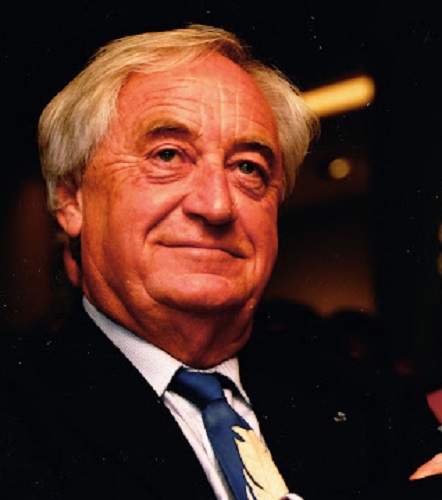
Onafhankelijk van geboortedata
De Amerikaanse dichteres Jill McDonough werd geboren in Hartford, Connecticut in 1972 en groeide op in North Carolina. Zie ook alle tags voor Jill McDonough op dit blog.
Drie uur ‘s morgens
Onze taxichauffeur vertelt ons waarom Somalië beter is
dan hier omdat we in de islam moordenaars executeren.
Dus minder moorden. Maar is er geen burgeroorlog
daar nu? Zijn er niet veel moorden?
Ja, maar over het algemeen is het beter. Niet
nu, maar meestal. Hij vertelt ons hoe
slim het systeem is, hoe moeilijk het is om een vals getuigenis
af te leggen. Wij knikken. We leren veel.
Ik zeg – zodra we dicht bij huis zijn – zeg ik: Hoe zit het
met ons? Twee vrouwen, met elkaar getrouwd.
Wees niet beledigd, zegt hij ernstig. maar een man
met een man, een vrouw met een vrouw: dat zou
een openbare executie worden. Wij knikken. Even een stilte langs
de Southeast Corridor. Dan zeg ik: ja,
ik hou van mijn land. Dit maakt hem aan het lachen; we lachen allemaal.
We zijn niet beledigd, zegt Josey. Wij houden van u. Soms
heb ik het gevoel dat we missioneren, het Woord van Homo verspreiden.
De taxi trilt van het lachen, de arme man,
opgelucht dat we niet boos zijn omdat hij ons eigenlijk dood wil hebben.
Wij tweeën kalmeren hem, willen dat hij zich op zijn gemak voelt,
willen dat hij lacht. Wij houden van ons land,
wij vertellen het hem. En Josey geeft hem een fooi. Ze geeft hem een grote fooi.
Vertaald door Frans Roumen

Zie voor nog meer schrijvers van de 31e juli ook mijn blog van 31 juli 2020 en eveneens mijn blog van 31 juli 2018 en ook mijn blog van 31 juli 2017 en ook mijn blog van 31 juli 2016 deel 1 en eveneens deel 2.


